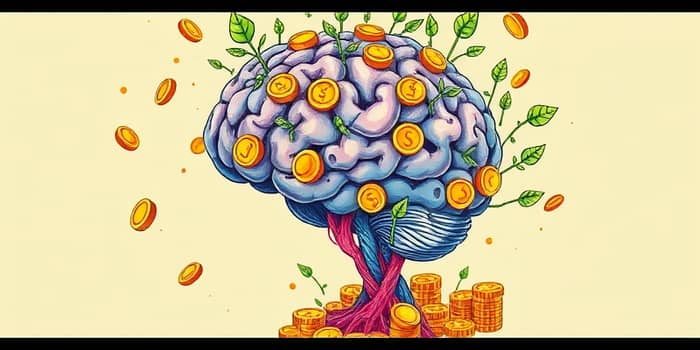
Our relationship with money goes far beyond dollars and cents. Understanding the roots of financial motivation reveals how our brains have evolved to chase resources and status.
In this article, we dive into the science, explore mindset typologies, uncover behavioral traps, and share practical strategies to cultivate a wealth-building outlook that fuels lasting success.
Neurological studies show that anticipating monetary gain triggers dopamine release, lighting up the reward centers in our brain. This effect is remarkably similar to ancient instincts that linked resource accumulation with survival and social standing.
Ancestral urges drive modern spending decisions despite the drastic shift from hunting game to swiping credit cards. Dopamine’s influence can motivate disciplined saving or fuel impulsive buying binges, depending on one’s mental framework.
From an evolutionary perspective, hoarding assets ensured safety for early human tribes. Today, that same impulse manifests in behaviors like stockpiling cash or chasing high-stakes investments. Recognizing this continuum helps us align our financial choices with rational goals rather than primal instincts.
Our beliefs about money tend to fall into distinct categories. Identifying your default mindset is the first step toward financial transformation.
The stories we tell ourselves about money can become self-fulfilling prophecies. If you believe wealth is beyond your reach, you may avoid investment opportunities or undermine your own efforts. Conversely, a positive outlook propels you toward goals with confidence and persistence.
Research underscores this effect. Individuals who visualize goals and maintain optimism report 59% higher confidence in reaching financial objectives, compared to just 31% among those who do not practice these habits.
Beyond numbers, deep-seated money scripts formed in childhood often guide adult behavior. By identifying and, if necessary, rewriting these narratives, you can break free from limiting patterns and make empowered decisions.
Socioeconomic context also matters. Prompting thoughts about money can boost self-confidence for those already well-off, while diminishing it for those in lower-income brackets. Awareness of this dynamic helps in designing interventions that uplift rather than discourage.
Even well-prepared individuals can fall victim to psychological traps that erode financial gains.
The “lottery effect” illustrates how sudden wealth without corresponding mindset preparation can be squandered. About 70% of lottery winners exhaust their windfalls within five years due to poor financial literacy and mindset readiness.
Status-driven spending, amplified by social media, fuels a constant need to keep up with peers. An estimated 30% of high earners still feel inadequate compared to others, leading to the pursuit of luxury items that offer temporary prestige rather than genuine fulfillment.
Similarly, Veblen goods—products whose desirability increases with price—exploit our innate status-seeking tendencies. The chase for high-end handbags or sports cars can trap individuals in a cycle of debt and dissatisfaction, proving that price tags alone do not equate to lasting happiness.
Transitioning to a more prosperous mindset involves intentional practice and self-reflection.
Our financial destinies are shaped as much by our internal narratives as by external circumstances. By understanding how the brain rewards resource acquisition and identifying your default money mindset, you gain the power to redirect your habits and beliefs.
Belief in your financial potential is not wishful thinking—it is a catalyst for action that influences every decision you make. Start today by examining your money stories and adopting practices that reinforce abundance. The journey to wealth begins with a single mindset shift.
References













